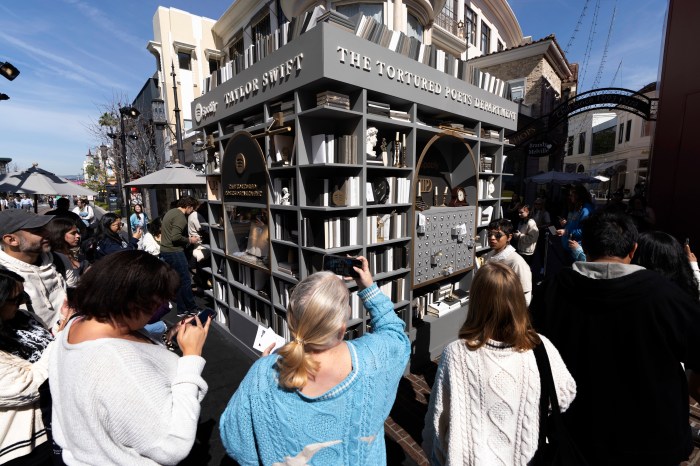If you go: “The True” runs through Oct. 21 at the Pershing Square Signature Center. 480 W. 42nd St., thenewgroup.org.
“We’re people. Who care about people. A machine doesn’t care. A machine doesn’t have heart. We have heart.”
So explains the leading proponent of local machine party politics in Sharr White’s (“The Other Place,” “The Snow Geese”) doleful and downbeat comedic drama “The True.”
The play is receiving its world premiere Off-Broadway in a New Group production (ably directed by Scott Elliott) starring Edie Falco (“The Sopranos,” “Nurse Jackie”), alongside Michael McKean (“Better Call Saul”) and Peter Scolari (“Bosom Buddies”). According to recent news reports, it is generating a great deal of interest and concern in Albany, where it is set.
As depicted in the play, Albany’s government circa 1977 was built around a backdoor, loyalty-driven system of patronage, in which votes for the party in power were rewarded with jobs, contracts and/or cash, and a vote for the other party could result in a property tax increase.
Falco plays Dorothea “Polly” Noonan, a real-life, colorful, foul-mouthed fixture of Albany politics, not to mention the grandmother of U.S. Sen. Kirsten Gillibrand. Polly served as an astute power broker, devoted assistant and unofficial spokeswoman for longtime Mayor Erastus Corning II (McKean), creating widespread gossip over whether Polly was cheating on her husband Peter (Scolari) with Erastus.
“The True” begins with the death of the local party boss and the realization that Erastus will be facing his first real primary challenge in decades. Erastus reacts by rashly terminating his affiliation with Polly, which sends her into a spiral of denial, disbelief, anger and mourning. All the while, for a variety of motivations (including her long-suppressed attraction to Erastus), she continues to wheel and deal on his behalf, including threatening enemies and trying to win over new supporters.
In one especially telling sequence, Polly tries to recruit an innocent young man (Austin Cauldwell) into both being a committeeman and devoting his entire life to Albany politics. When he politely explains that he cannot even commit to living much longer in Albany, Polly is dumbfounded. “Where’s the dedication? Where’s the f—— dedication?” she screams.
The play (which runs under two hours without an intermission) relies upon long-winded scenes that often turn flat and tedious, stressing the same points repeatedly. Nevertheless, it provides an ambivalent, even sympathetic examination of an unapologetically crooked system of politics (“we have heart,” Polly insists) and the limited opportunities and severe risks for women who wanted to be involved. It also has a large and challenging lead female role.
Falco (who won acclaim for a 2002 Broadway revival of “Frankie and Johnny in the Clair de Lune”) brings plenty of comic flair, vigor and raw emotion to the role, which compensates for (and maintains the audience’s attention during) the play’s slow points.
McKean gives the impression of a tired, depressed, unsure, aging man, which is best exhibited as he sinks into an armchair and drinks scotch in silence while the television blares in the background and Polly works busily at her sewing machine. Scolari eventually gets to shake off his reserved, mild-mannered disposition and unleash his anger over being treated by the community as an object of derision and pity.

















